Building Villas in Black And White 2
The humble key to world domination
In Lionhead’s game Black &White 2, you can build hovels, houses, villas, manors, mansions, and skyscrapers to house your growing populace. The housing in my cities is almost exclusively villas, which have a few advantages compared to other dwellings: unlike hovels and houses, they make your city more impressive, not less, and they take fewer resources to build than manors, mansions, and skyscrapers. You can’t pack them together as closely as some of the latter, but that drawback is also a benefit. Spacing villas widely gives room for other buildings (markets, etc), embellishments (statues, columns), and the all-important trees.
After building thousands of villas over the course of many lands, I’ve found a strategy for building them that works well when you’re building at the edge of your influence. It simultaneously gives more housing immediately, expands your influence, and creates more housing to be completed by your citizens.
A Building Technique
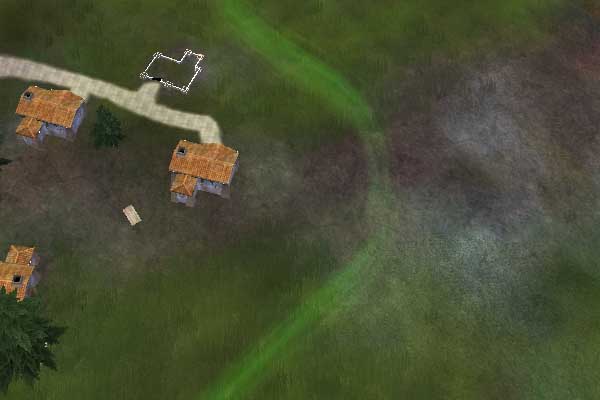
The goal: expand our influence ring as quickly and efficiently as possible.
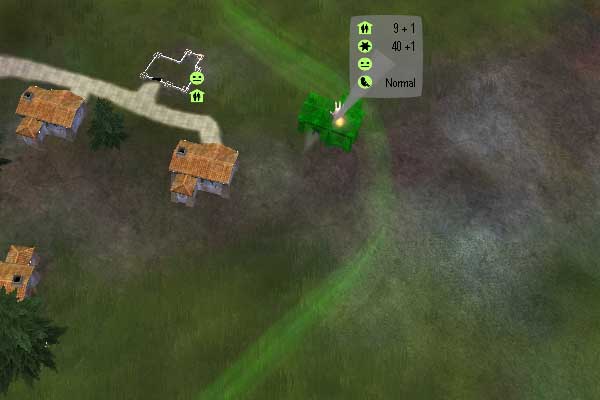
Begin by placing a villa blueprint across the road from the closest existing villa. Place it just far enough from the other villas to make all their happiness indicators green, not yellow. Staggering villas on alternate sides of a road lets you fit villas more closely together without a happiness penalty.
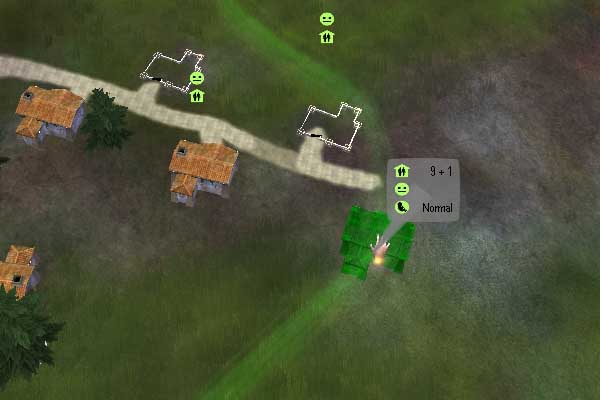
Place a second villa blueprint on the other side of the road. Again, you want the nearest villas’ happiness indicators to be green. You’ll be placing this villa at the edge of your influence, so you might have to move and rotate it a little to find the perfect spot. It sometimes helps to pull the blueprint back from the road a little.
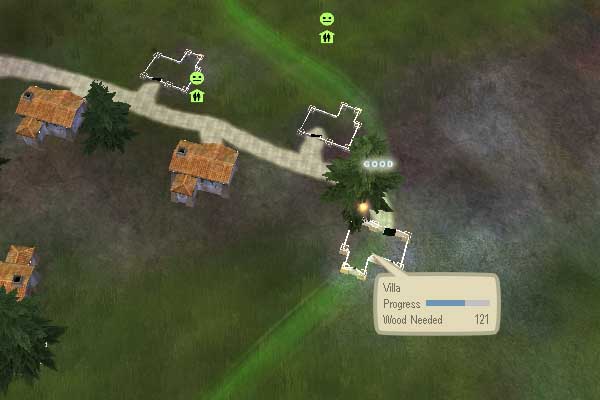
God-build the second villa to finish it quickly. Unless you’ve created dozens of disciple builders, you’ll go gray waiting for your people to finish it.
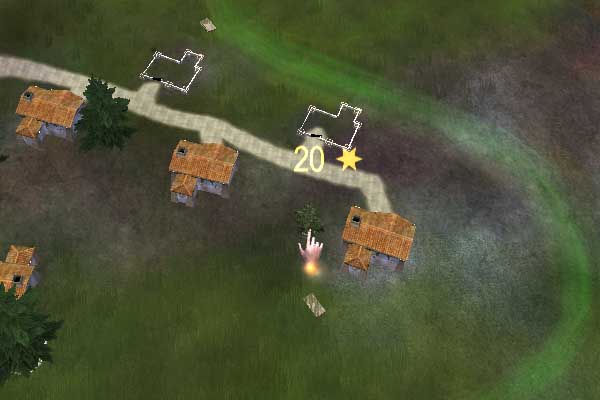
God-building a villa takes most of a single mature tree. Plant what’s left next to the newly created villa for an extra +20 impressiveness.
Et voilà: your influence has expanded, yielding new territory to repeat this process in, and you’ve created housing for your disciple builders to construct. And during a housing crisis you can god-build the remaining villas quickly.
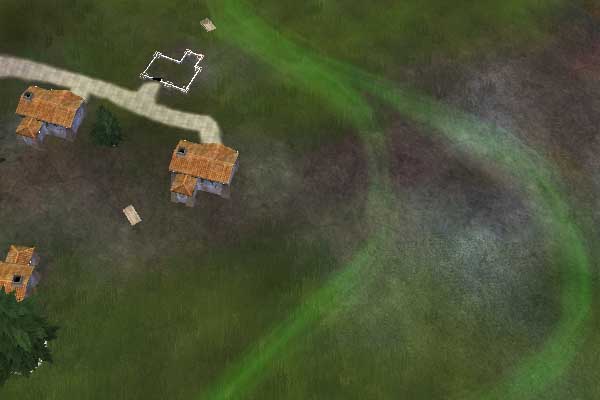
Influence ring, before and after
Another benefit of this technique is that building outward in two directions simultaneously creates a wedge you can fill with impressive buildings such as taverns, baths, and amphitheatres.
The Economics of Villas
Why build villas exclusively, rather than other types of dwellings? Villas are the best compromise between resources used, impressiveness, housing capacity, and speed of building. They take just one mature tree to build, which makes them much faster to construct than manors, mansions, and skyscrapers. Their base impressiveness is only 22, but with a few tricks it can be significantly improved:
| action | impressiveness change | cumulative impressiveness |
|---|---|---|
| build villa | +22 | 22 |
| Population modifier | +14 (= 1.8 × 8 adults) | 36 |
| Building Variety modifier | −18 (maximum penalty) | 18 |
| rotate blueprint before placing | +9 | 27 |
| connect villa to road | +45 | 72 |
| plant tree next to | +20 | 92 |
| plant four more trees next to | +80 | 172 |
This doesn’t count the location bonus, which usually ranges from +40 up to the rare +200. Also, you can plant a surprising number of trees around a villa; my record is 42, yielding +840 impressiveness.
These days, I build manors and mansions only when I need to expand my influence ring a little more than building a villa will, or when I need to pack housing tightly to take advantage of a good location bonus. If you want fine homes, try the villa-building technique above but replace the first villa blueprint placed with a manor or mansion. You build villas as your disciple builders construct more elegant homes.
Last updated 4 December 2006
http://www.rdrop.com/~half/General/GameTips/bw2.villas.html
All contents ©2006 Mark L. Irons